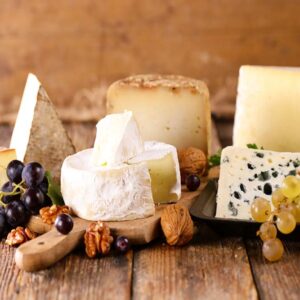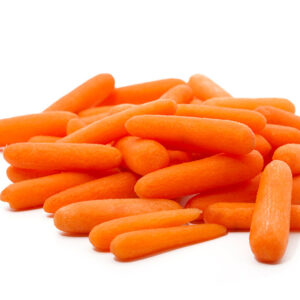
Superfood DESTROYS Breast & Colon Cancers
Dear Reader,
I’ve seen enough cancer in my career… and enough people wrecked by mainstream cancer treatments… to learn one powerful thing about the disease.
The best way to beat cancer is to never get it in the first place.
You can quit smoking (and you should) and spend more time in the sun — which will both decrease your cancer risk.
But research is now proving that there’s one powerful superfood that can slash your cancer risk… and maybe even kill cancer cells before they become full-blown tumors.
It contains powerful compounds that I’ve been telling my patients about for years — but odds are, you’ll never learn about them in a mainstream doctor’s office.
When you think of superfoods, chances are onions aren’t the first thing that pop into your mind.
But they should be.
People who eat the most onions have been found to have a lower risk of numerous cancers, including laryngeal, colorectal, and ovarian cancers.
Now, the latest research has found that onions are extremely effective at killing both colon and breast cancer cells.
This study, published in Food Research International, showed that when a compound found in red onions, called quercetin, was placed in direct contact with the cancer cells, it launched an all-out attack that absolutely DESTROYED cancer cells.
This included activating pathways that lead to cancer cell death and keeping cancer cells from spreading by disrupting the communication between them.
The researchers tested five types of onions, and the Ruby Ring variety came out on top.
That’s not surprising to me. The deep, rich color of red onions is a dead giveaway of their health benefits. That’s because the compounds that give them their color—quercetin and anthocyanin—have their own impressive resume of health benefits.
Studies have shown that quercetin reduces inflammation, supports heart health, fights allergies, and more. You’ll also see it in lots of prostate supplements.
Plus, a study published in the Journal of Biological Regulators and Homeostatic Agents showed that people who consume a diet rich in quercetin have a lower risk of cancer.
In fact, quercetin is a common denominator in some of nature’s most powerful superfoods, including blueberries, kale, and broccoli.
Anthocyanins have plenty of benefits in their own right as well. Foods that contain anthocyanins have been found to have anticancer effects on breast, prostate, colon, and oral cancers. They’ve also been shown to stop cancer cells from spreading.
In fact, studies have shown that anthocyanins contain 2 TIMES the antioxidant power of vitamin C!
As impressive as they are alone, they’re even better TOGETHER.
When anthocyanins are paired with quercetin, it boosts the properties of quercetin, making foods that contain these two nutrients some of the most nutritious out there.
And while all onions contain quercetin, they don’t all contain anthocyanins. That’s what makes red onions so powerful.
This study was done on cancer cells in a lab setting. But what research has shown is that people who eat the highest amounts of onions, or foods with quercetin and anthocyanins, have a GREATLY REDUCED risk of cancer.
That’s all the evidence I need.
Besides, red onions make a delicious addition to just about any dish. Two of my favorite ways to eat them are sliced on top of a juicy hamburger, and diced up in a fresh summer salad with grilled chicken and avocado.
Don’t you just love it when something that tastes so good is good for you, too?
To a brighter day,
Dr. Richard Gerhauser, M.D.
Written By Dr. Richard Gerhauser, M.D.
For years he’s been the trusted doctor for celebrities, world-class athletes, and countless seniors looking to reclaim their health.
And now…for the first time ever… he’s making his medical breakthroughs available to readers all across America.
Dr. Richard Gerhauser, M.D. is one of the most pioneering and innovative minds in medicine today – and he delivers cutting-edge cures each month through his Natural Health Response newsletter.
Natural Health Response readers get full access to Dr. Gerhauser’s protocols for chronic pain… heart disease… diabetes… Alzheimer’s… and even cancer. These are the very same treatments Dr. Gerhauser recommends to his own patients at his practice in Tucson, Arizona.
In addition to being a board-certified medical doctor, Dr. Gerhauser has earned two master’s degrees and has served as a clinical professor at the University of Arizona.
And as a physician at the world-famous Canyon Ranch, Dr. Gerhauser treated celebrities from around the world who paid dearly for the type of next-generation health information he provides Natural Health Response readers each month.
View More Free Articles
Mother Nature's Bone-Building Secret REVEALED
Mainstream medicine has peddled the same old song and dance about osteoporosis for years. Pop some calcium pills… do some jumping jacks… and cross your fingers that your bones don’t crumble like a stale cookie. But what if I told you Mother Nature has been hiding a bone-building secret right under our noses? And we […]
The INCREDIBLE Payoff for Delaying Diabetes
If you don’t know where your blood sugar levels stand, it’s time to get them checked. It’s estimated that one in three adults has prediabetes, yet 80 percent of these folks have NO IDEA they’re in this category. That’s a BIG problem because most people will develop type 2 diabetes within just five years of […]
The Biggest Dementia Risk Factor REVEALED
I’m sure you’re familiar with the Skeleton Dance song… “The foot bone is connected to the leg bone. The leg bone is connected to the knee bone…” It’s easy to think of our bones being linked because we can physically see them. What’s less obvious is that everything else about your health is JUST as […]
It's NEVER Too Late to Kick This Dangerous Habit
You’ve heard it a million times before: “Smoking is bad for you.” If you’re still lighting up, I bet you remember a time when smoking wasn’t just accepted—it was downright fashionable. Remember when you could smoke in restaurants, on airplanes, and even in hospitals? Heck, movie stars even made it look cool and sophisticated. Well, […]
The TRUTH About ED No One's Talking About
It’s a subject most men would rather sweep under the rug… erectile dysfunction (ED). But you’re not alone if you’re having trouble in the bedroom. In fact, ED affects up to 30 million men in the U.S. alone. However, popping a little blue pill isn’t the answer. ED drugs are often just slapping a Band-Aid […]
Don’t Let Muscle Loss RUIN Your Golden Years
For older women, muscle mass can take a nosedive after menopause. This means more than trouble carrying in the groceries. Over time, the decline in muscle mass can lead to mobility problems, balance problems, falls, and ultimately a loss of independence. Staying active is a critical piece of the puzzle. But now, researchers have discovered […]
The Bad Habit Causing Lupus
All autoimmune diseases are on the rise—but lupus is one of the worst. When the condition strikes, your immune system starts to attack healthy tissues. Lupus cases have increased by 60 percent in women and have increased six-fold in men over the past four decades. What’s driving this dramatic increase? Well, we might have found […]
SHOCKING Missing Piece of the Diabetes Puzzle Discovered
I’ve been saying for years that there’s MORE to type 2 diabetes than your weight—or even your diet. Sure, they play their part. But unless you’re adding in THIS missing piece of the puzzle, you could be increasing your risk of type 2 diabetes despite your best efforts to avoid it. And you’ll never guess […]
Ditch the Chips and DEFY Aging
Sometimes, you just want something to crunch on. The craving can send even the most health-conscious among us heading straight to the snack aisle. But before you reach for the potato chips—which can contain all kinds of harmful ingredients—I have a better idea. Try THIS crunchy, healthy snack instead of loading up ingredients that can […]
Is Aspirin DEADLY? (Get the Truth Here)
Old habits die hard… especially when we’ve been led to believe they’re good ones. We were told for years that taking an aspirin a day would lower the risk of heart attack and stroke. But for many, those were empty promises that came with a LOT of risk… and LITTLE reward. That’s why, if you’re […]










